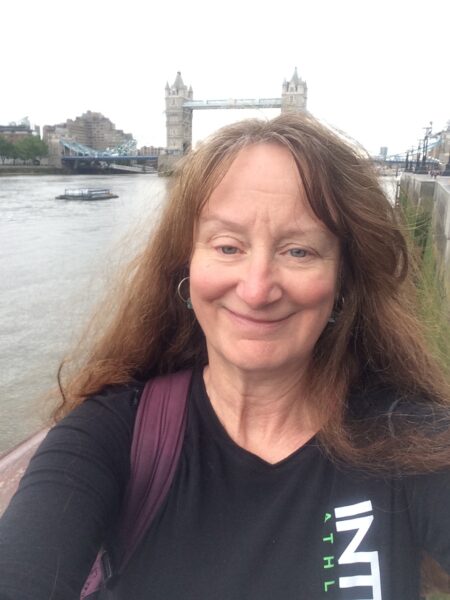Melissa Darby is a research scholar in the Department of Anthropology at Portland State University and a private consultant in cultural resource management. She lives in Portland, Oregon, and has been a member since 2015.

Melissa Darby is a research scholar in the Department of Anthropology at Portland State University and a private consultant in cultural resource management.
Alma maters: BA (history and anthropology)/Cert. (Middle East studies), Portland State University, 1980; MA (anthropology), Portland State University, 1996
Fields of interest: ethnohistory, people and cultures of the Northwest Coast
Describe your career path. What led you to where you are today? After graduating with a BA in 1980 I worked for many years as a field archaeologist and historian for various public and private entities including the US Forest Service, National Park Service, a county museum, and private cultural resource management firms. After receiving my master’s degree I started my own consulting company conducting cultural resource projects throughout the Northwest. My work includes writing National Register nominations, conducting archaeological and historic building surveys, and conducting archaeological excavations.
What do you like the most about where you live and work? The beauty of the landscape of the Northwest is always a delight. The Oregon Coast, in particular, is spectacular most of the year.
What projects are you currently working on? I am writing a book that explores the question, “Where is the faire and good bay where Francis Drake and his crew in the Golden Hind spent five or six weeks in the summer of 1579?”
Have your interests evolved since graduation? If so, how? My thesis was an ethnohistorical exploration of an important root eaten traditionally by Native American groups in the Northwest. Research on the world use of this root has taken me to Japan, England, Germany, and Italy.
What’s the most fascinating thing you’ve ever found at the archives or while doing research?I found a reference that a cast iron skillet once owned by a prominent local Native American was given to his family by a member of the Lewis and Clark expedition. I found the skillet in a local museum’s collection, and matched its circumference to a burnt ring from a skillet lid that had been accidentally set down on one of Clark’s hand drawn maps (probably by the fumbling Charbonneau). It was an exact match. The odds of a match like that during a time when skillets were not mass produced is infinitesimally low. So I found an artifact that was likely from the Lewis and Clark expedition.
Is there an article, book, movie, blog etc. that you could recommend to fellow AHA members? I listen to Dan Carlin’s podcast Hardcore History, and the History Extra podcast from the UK.
What do you value most about the history discipline? I value history work because we are looking for the truth, and trying to tell an authentic story.
AHA members are involved in all fields of history, with wide-ranging specializations, interests, and areas of employment. To recognize our talented and eclectic membership, AHA Today features a regular AHA Member Spotlight series.
This post first appeared on AHA Today.
This work is licensed under a Creative Commons Attribution-NonCommercial-NoDerivatives 4.0 International License. Attribution must provide author name, article title, Perspectives on History, date of publication, and a link to this page. This license applies only to the article, not to text or images used here by permission.



